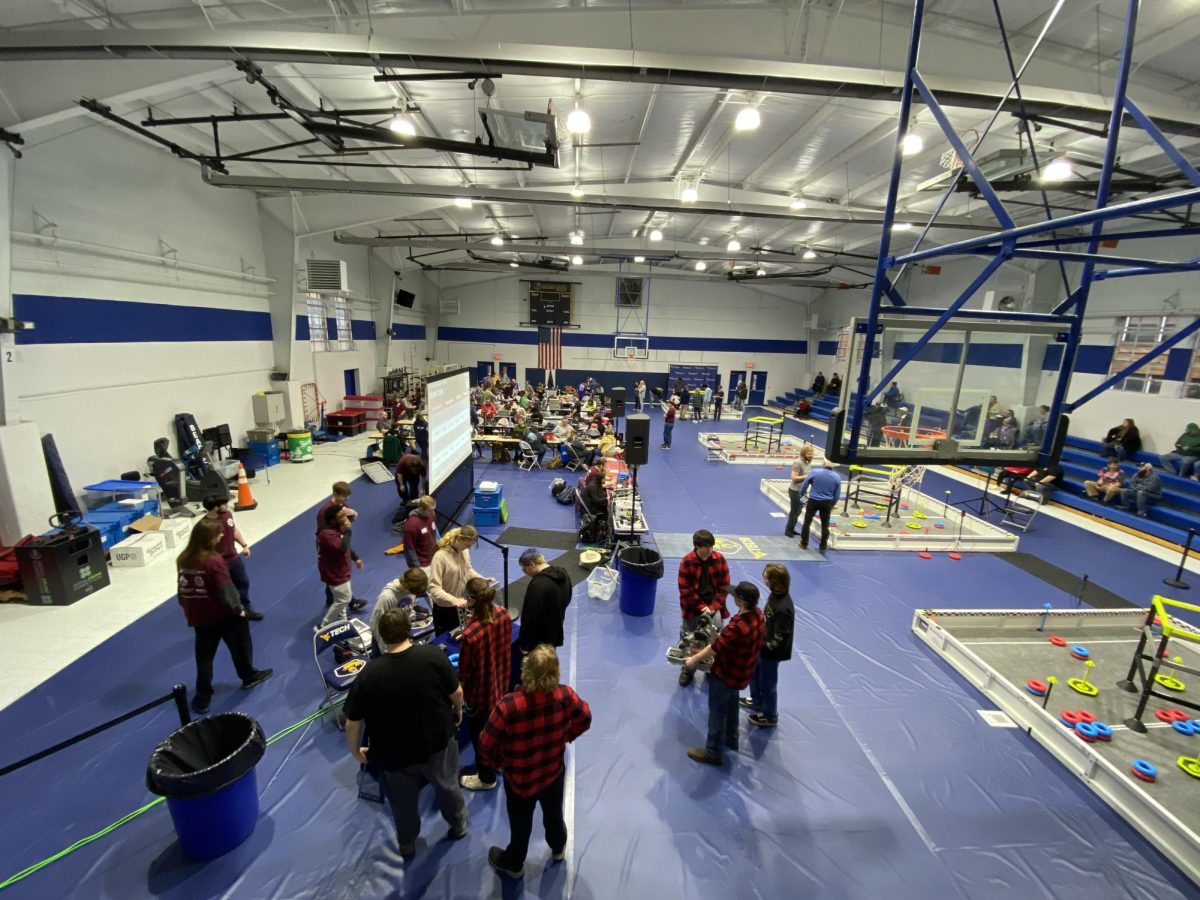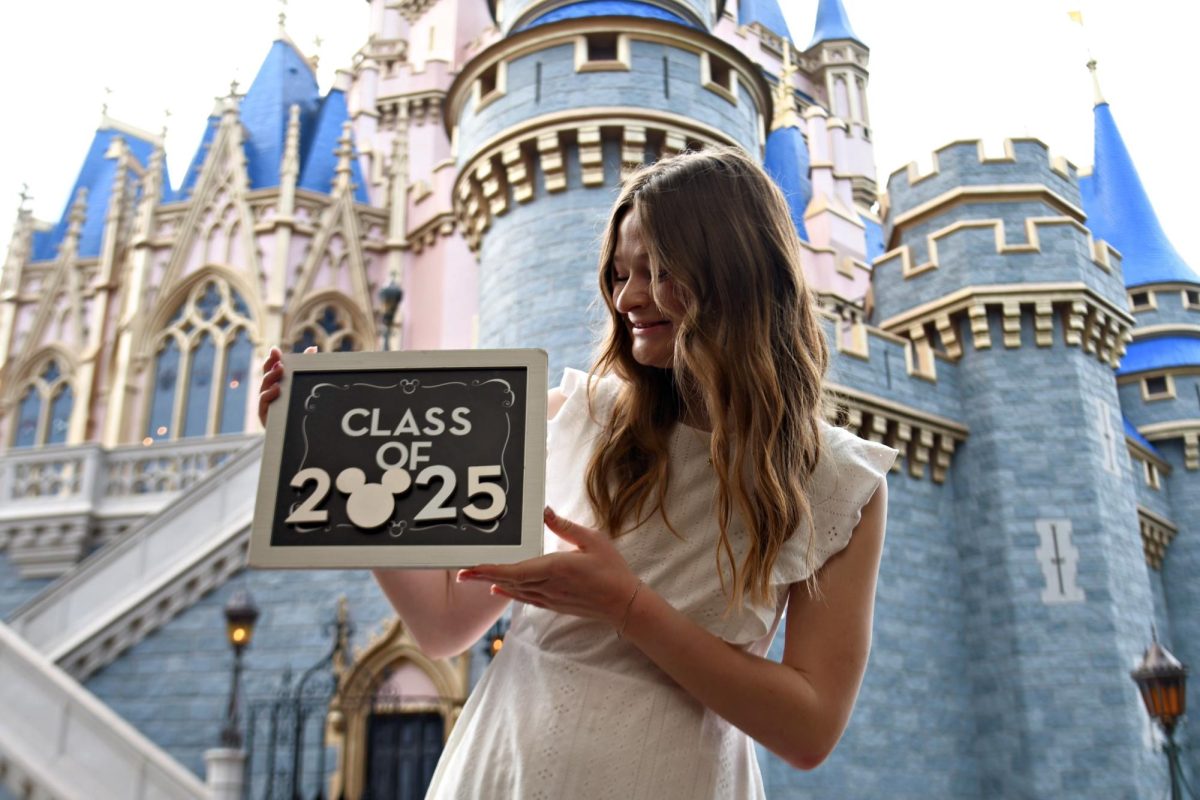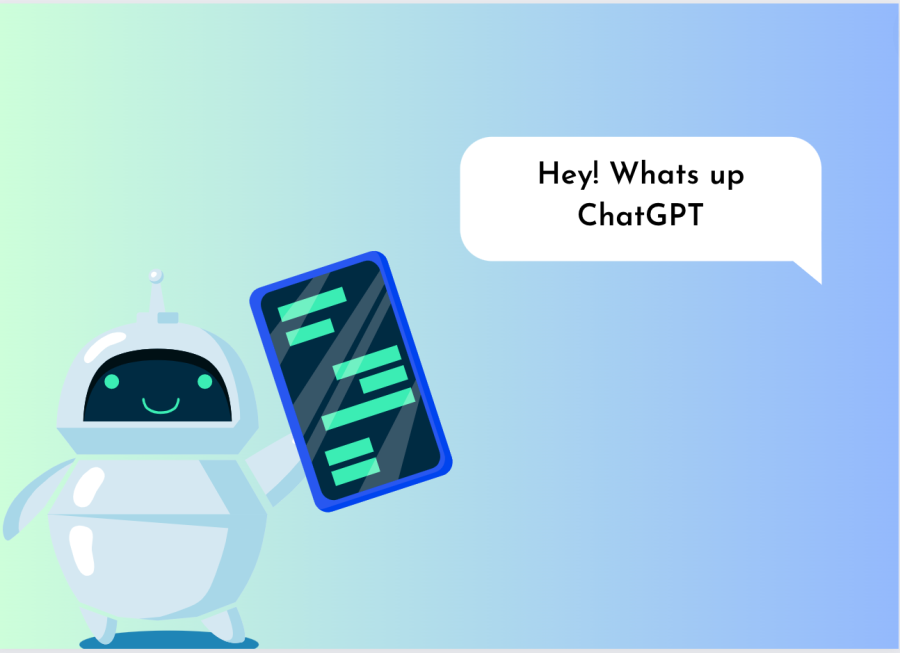Is Artificial Intelligence Dumbing Us Down? Real World Implications of ChatGPT-4
April 25, 2023
The robots have landed. Have you noticed AI taking over your world, or at least the app version of your world, lately? That’s because AI is a hot topic, no matter how casually or scientifically you consider it. Snapchat recently launched “My AI” that responds immediately to user prompts. Users can ask My AI anything and get an “intelligent” response. For instance, TED staff recently asked My AI “When will the world end?” and the response was a non-committal “I’m not sure when the world will end, but let’s hope it’s a long time from now”, erring on the side of positivity. Spotify also released its version of AI with “The DJ” that takes your musical tastes and personalizes a continuous playlist for you, also incorporating music you may like based on current likes. Users say it isn’t too different from what Spotify already does in terms of creating personalized playlists, but the addition of a voice and a simulated personality add a new dimension to the app that is, as some describe it, comforting, and as others describe it “creepy” or “scary”. One unsubstantiated claim from a a TikTok user even reported that she snapped a picture of her bed that didn’t show her cat present at the other end and the Snapchat AI responded with “That’s a nice cat!” So what can be said about AI to help us understand what it truly can and cannot do?
Language models are AI systems which are built to be trained on large amounts of data from the internet to generate responses to human prompts that are similar to human speech (Digitaltrends). On March 13, 2023, OpenAI officially released its long-awaited and most advanced language model yet, called ChatGPT-4. The model is built to be the successor to the previous model, ChatGPT-3, which was released in November 2022. According to OpenAI, ChatGPT-4, “excels at tasks that require advanced reasoning, complex instruction understanding, and more creativity” (Wired). The new AI model is also designed to be safer, more responsive, and more functional than ChatGPT-3. So while it isn’t necessarily intelligent as we define intelligence, it is programmed to simulate human thinking in terms of responses to prompts.
According to OpenAI, ChatGPT-4 has already achieved some remarkable achievements such as passing a simulated bar exam with a top 10% score while ChatGPT-3.5 received a score in the bottom 10%. Additionally, ChatGPT-4 has demonstrated its ability to generate more complex and less buggy code than ChatGPT-3 (Forbes).
In addition to these improved abilities, ChatGPT-4 can also accept image inputs with text instructions unlike previous models, This new capability can allow ChatGPT-4 to generate a new range of outputs and gives the AI model increased functionality (Forbes). ChatGPT-4 has more advanced creativity as well, allowing it to engage in creative projects such as creating music and screenplays (Digitaltrends).
From a teacher perspective, AI means more opportunity for plagiarism and students attempting to rely on artificial intelligence to complete their assignments for them. “I’ve caught multiple students attempting to use AI in the classroom,” said Travis Doyle, English Department Chair for Woodrow Wilson High School. “It’s mostly ChatGPT, but the quality of work is so abysmal it is actually more of a punishment for me to grade the nonsense the AI is generating than for them to actually address (the essay). In order to use the AI to help complete your work, you need to understand the content and assignment and give it extremely specific instructions,” he said. “In most cases, the students just do better writing the essays themselves.”
From an industrial perspective, in the near future, various companies will likely harness ChatGPT-4’s new and improved capabilities to enhance customer experience, improve customer service, optimize content and improve accessibility— not to cheat on essays (Forbes). Already, various companies such as Stripe and Khan Academy have adopted ChatGPT-4 into their applications and services to help improve both (Digitaltrends).
Overall, ChatGPT-4 is another major milestone in the development of AI and language models, and it showcases AI system capability. ChatGPT-4 also demonstrates that AI is rapidly advancing and, while an annoyance to teachers, it will likely not replace learning, as it requires at least an educated prompt to even begin to construct believable synthesis projects, such as essays. AI is undeniably becoming an important part of our everyday lives as it gains functionality, and it will have important applications to advancements in industry.


















